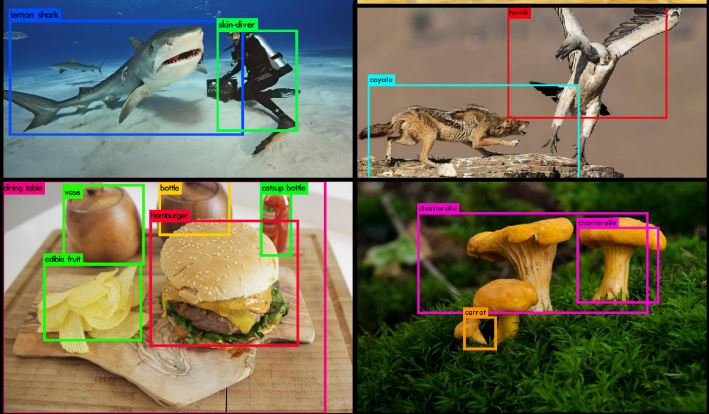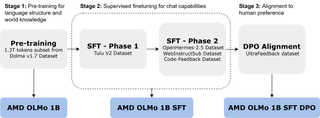After earlier efforts to reign in generative synthetic intelligence (genAI) have been criticized as too obscure and ineffective, the Biden Administration is now anticipated to announce new, extra restrictive guidelines to be used of the know-how by federal workers.
The manager order, anticipated to be unveiled Monday, would additionally change immigration requirements to permit a higher inflow of know-how employees to assist speed up US improvement efforts.
On Tuesday evening, the White Home despatched invites for a “Protected, Safe, and Reliable Synthetic Intelligence” occasion Monday hosted by President Joseph R. Biden Jr., in response to The Washington Put up.
Generative AI, which has been advancing at breakneck speeds and setting off alarm bells amongst business consultants, spurred Biden to challenge “steerage” final Could. Vice President Kamala Harris additionally met with the CEOs of Google, Microsoft, and OpenAI — the creator of the favored ChatGPT chatbot— to debate potential points with genAI, which embrace safety, privateness, and management issues.
Even earlier than the launch of ChatGPT in November 2022, the administration had unveiled a blueprint for a so-called “AI Invoice of Rights” in addition to an AI Danger Administration Framework; it additionally pushed a roadmap for standing up a Nationwide AI Analysis Useful resource.
The brand new government order is anticipated to raise nationwide cybersecurity defenses by requiring massive language fashions (LLMs) — the inspiration of generative AI — to bear assessments earlier than they can be utilized by US authorities businesses. These businesses embrace the US Protection Division, Power Division and intelligence businesses, in response to the Put up.
The brand new guidelines will bolster what was a voluntary dedication by 15 AI improvement corporations to do what they might to make sure the analysis of genAI methods that’s in step with accountable use.
“I’m afraid we don’t have an excellent observe document there; I imply, see Fb for particulars,” Tom Siebel, CEO of enterprise AI software vendor C3 AI and founding father of Siebel Methods, instructed an viewers at MIT’s EmTech Convention final Could. “I’d wish to consider self-regulation would work, however energy corrupts, and absolute energy corrupts completely.”
 Shutterstock
ShutterstockWhereas genAI gives intensive advantages with its capacity to automate duties and create subtle textual content responses, photographs, video and even software program code, the know-how additionally has been identified to go rogue — an anomaly often called hallucinations.
“Hallucinations occur as a result of LLMs, of their in most vanilla kind, don’t have an inside state illustration of the world,” mentioned Jonathan Siddharth, CEO of Turing, a Palo Alto, CA firm that makes use of AI to seek out, rent, and onboard software program engineers remotely. “There’s no idea of reality. They’re predicting the subsequent phrase primarily based on what they’ve seen thus far — it’s a statistical estimate.”
GenAI may also unexpectedly expose delicate or personally identifiable information. At its most elementary stage, the instruments can collect and analyze huge portions of knowledge from the Web, firms, and even authorities sources with a view to extra precisely and deeply supply content material to customers. The disadvantage is that the knowledge gathered by AI isn’t essentially saved securely. AI purposes and networks could make that delicate info susceptible to information exploitation by third events.
Smartphones and self-driving automobiles, for instance, observe customers’ places and driving habits. Whereas that monitoring software program is supposed to assist the know-how higher perceive habits to extra effectively serve customers, it additionally gathers private info as a part of massive information units used for coaching AI fashions.
Adnan Masood, chief AI architect at digital transformation companies firm UST, mentioned the upcoming rules from the White Home have been “a very long time coming, and it’s a superb step [at] a important juncture within the US authorities’s method to harnessing and containing AI know-how.
“I maintain reservations about extending regulatory attain into the realms of analysis and improvement,” Masood mentioned. “The character of AI analysis requires a stage of openness and collective scrutiny that may be stifled by extreme regulation. Significantly, I oppose any constraints that would hamper open-source AI initiatives, which have been a driving power behind most improvements within the area. These collaborative platforms permit for speedy identification and remediation of flaws in AI fashions, fortifying their reliability and safety.”
GenAI can also be vulnerable to baked-in biases, corresponding to AI-assisted hiring purposes that have a tendency to decide on males versus girls, or white candidates over minorities. And, as genAI instruments get higher at mimicking pure language, photographs and video, it’s going to quickly be unattainable to discern faux outcomes from actual ones; that is prompting corporations to arrange “guardrails” towards the worst outcomes, whether or not they be unintentional or intentional efforts by unhealthy actors.
US efforts to reign in AI adopted comparable efforts by European nations to make sure the know-how is not producing content material that violates EU legal guidelines; that would embrace baby pornography or, in some EU nations, denial of the Holocaust. Italy outright banned additional improvement of ChatGPT over privateness issues after the pure language processing app skilled a knowledge breach involving person conversations and cost info.
The European Union’s “Artificial Intelligence Act” (AI Act) was the primary of its sort by a western set of countries. The proposed laws depends closely on current guidelines, such because the Normal Knowledge Safety Regulation (GDPR), the Digital Companies Act, and the Digital Markets Act. The AI Act was initially proposed by the European Fee in April 2021.
States and municipalities are eyeing restrictions of their very own on the usage of AI-based bots to seek out, display, interview, and rent job candidates due to privateness and bias points. Some states have already put legal guidelines on the books.
The White Home can also be anticipated to lean on the Nationwide Institute of Requirements and Know-how to tighten business pointers on testing and evaluating AI methods — provisions that will construct on the voluntary commitments on security, safety and belief that the Biden administration extracted from 15 main tech corporations this yr on AI.
Biden’s transfer is particularly important as genAI experiences an ongoing increase, resulting in unprecedented capabilities in creating content material, deepfakes, and probably new types of cyber threats, Masood mentioned.
“This panorama makes it evident that the federal government’s function is not only a regulator, however [also as] a facilitator and client of AI know-how,” he added. “By mandating federal assessments of AI and emphasizing its function in cybersecurity, the US authorities acknowledges the twin nature of AI as each a strategic asset and a possible danger.”
Masood mentioned he is a staunch advocate for a nuanced method to AI regulation, as overseeing the deployment of AI merchandise is crucial to make sure they meet security and moral requirements.
“As an example, superior AI fashions utilized in healthcare or autonomous autos should bear rigorous testing and compliance checks to guard public well-being,” he mentioned.




